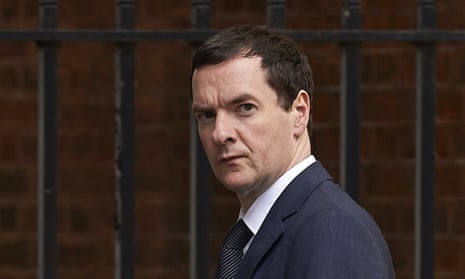George Osborne is planning to use his first Conservative budget to lift all but the very richest households out of inheritance tax on the same day he sets out billions of pounds in welfare cuts.
The move will allow a couple to pass a house worth up to £1m to their children or grandchildren. The chancellor will create a £175,000, tax-free allowance per person for their main property on top of their existing £325,000 allowance that can be applied to all assets.
His intention to lift all but the wealthiest homeowners out of inheritance tax was first revealed when sensitive Treasury papers were leaked to the Guardian before the last budget, which concluded that it would “most likely benefit high income and wealthier households”.
The Conservative proposals were later confirmed by David Cameron during the election campaign and became a key plank of the Tory manifesto championing a “Conservative dream”.
At the time, the Institute for Fiscal Studies (IFS) said the proposal would disproportionately benefit wealthier people and could have a negative effect on the property market if elderly homeowners were discouraged from downsizing.
The changes, likely to cost about £1bn, will be paid for by reductions to tax relief on pensions, possibly through lowering the amount available to top-rate taxpayers from £40,000 to £10,000 a year on a sliding scale. The IFS has said this would “affect a relatively small number of high-income individuals”.
It is understood the plans have now been amended to allow pensioners to move into smaller homes without missing out on the £1m relief on their former properties. A new mechanism will mean that if someone sells their main residence and buys one that is cheaper, they will get the allowance up to the value of their previous home.
Osborne’s decision to bring forward the proposals in his first budget since the Tories won a majority is a sign that it is high on his list of priorities, eight years after he first pledged to raise the threshold to £1m while in opposition as the shadow chancellor.
Many within Labour are likely to use the announcement to characterise the Conservatives as being the party of tax cuts for millionaires in the same way as they did when Osborne lowered the 50p income tax rate to 45p under the Conservative-Liberal coalition.
Under the current rules, inheritance tax is charged on estates worth more than £325,000, rising to £650,000 for couples, because the rate is transferable between those who are married or in civil partnerships. It is charged at 40% of the excess value of assets above the threshold and is paid by the estate of the deceased.
The new proposals raise the rate to £500,000 by introducing a new zero-rate band of £175,000 on a main property when it is passed on death to a child or grandchild. This would create a £1m limit for couples because it would also be transferable and mean that 94% of households are exempt from the tax.
Osborne is expected to set out details of much of his proposed £12bn cuts in welfare in the same budget, which will be delivered to parliament on Wednesday.
Cameron has strongly hinted that one of the cuts will be reductions to tax credits, after he gave a speech saying he wanted to end the welfare “merry-go-round” whereby wages are topped up by state handouts.
There have also been reports that Osborne would like to go even further than his plan to reduce the benefit cap from £26,000 to £23,000 and perhaps cut it to £20,000 outside London.
Separately, the chancellor is under pressure from a group of about 160 Conservatives to reduce the top rate of tax further for those earning more than £150,000 a year from 45p to either 42p or 40p.
It is possible he could also announce reforms to the non-dom status, including raising the annual charge and stopping its hereditary nature. Labour had pledged to abolish the status in a popular announcement during the election campaign.
At the time it was announced, the IFS described the inheritance tax pledge as special treatment for homeowners.
A briefing note said: “Since the children of those with very large estates are disproportionately towards the top of the income distribution, the gains from this [and in fact any] IHT cut will also go disproportionately to those towards the top of the income distribution.”
Paul Johnson, the director of the IFS, then told the BBC that it was “rather odd to give this special treatment to housing given that owner-occupied housing is already extremely tax privileged”.
He said: “This will only increase the bias we have towards putting your money in a house, to inflating potentially the value of housing, without dealing with the lack of housing, which is driving up the value of private residences.”
Before the election, Chris Leslie, the then shadow chief secretary to the Treasury, said it “cannot be a priority to spend £1bn on a policy which the Treasury says would not apply to 90% of estates”.
He said: “The Tories would choose to give a £140,000 tax cut for a house worth £2m while they have increased VAT on families and pensioners.”

Comments (…)
Sign in or create your Guardian account to join the discussion